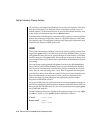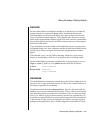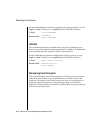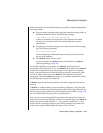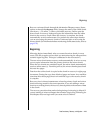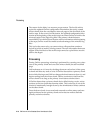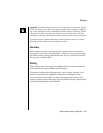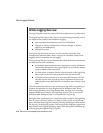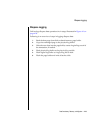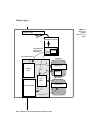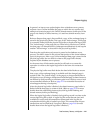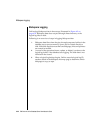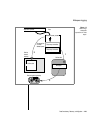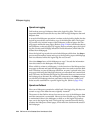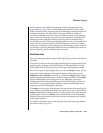
4-18 IBM Informix OnLine Database Server Administrator’s Guide
OnLine Logging Overview
OnLine Logging Overview
The logical log files are at the center of all OnLine data-recovery mechanisms.
The logical log files receive three types of records during processing, even if
no databases are created with transaction logging:
■ SQL data definition statements (DDL) for all databases
■ Changes to OnLine configuration (includes changes to chunks,
dbspaces, and blobspaces)
■ Checkpoint events
The logical log files also receive one or more records of each SQL data
management statement (DML) that is executed in a database created with
logging. SELECT statements are not logged.
The logical log files serve three functions that affect all OnLine mechanisms
for data recovery and consistency:
■ If a database uses transactions and a transaction must be rolled back,
OnLine uses the records in the logical log files to reverse the changes
made on behalf of the transaction.
■ If a data restore is needed, OnLine uses the records in the logical log
files to roll forward all work performed since the last archive.
■ If OnLine has been shut down in an uncontrolled manner, OnLine
uses the records in the logical log files to implement fast recovery
and bring the system back online in a consistent state without loss of
data.
The information that OnLine writes to the logical log differs, depending on
whether the operation involves dbspace data or blobspace data. When
OnLine logs operations involving dbspace data, the data rows (including
dbspace blobs) are included in the logical log records. This is not true for
blobspace data. Blobspace data is not copied to the logical log.
Blobspace data is potentially too voluminous to be included in the logical log
files. If it were, the many kilobytes of data per blob would overwhelm the
space allocated for the log files. Instead of storing the blobspace data needed
for recovery in the logical log files, OnLine copies the blobspace pages from
disk directly to the logical log backup tapes when the log files are backed up,
without going through the logical log files.



